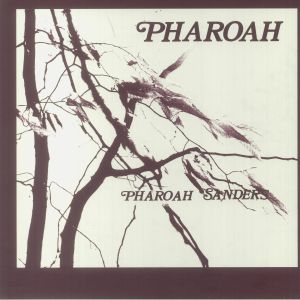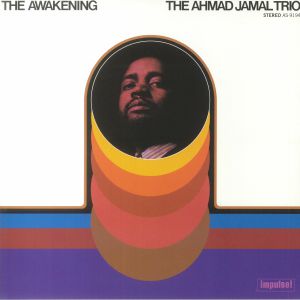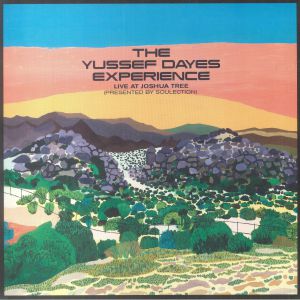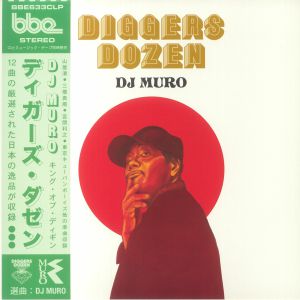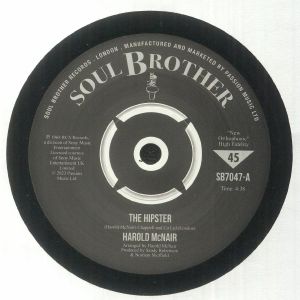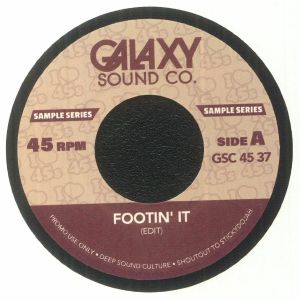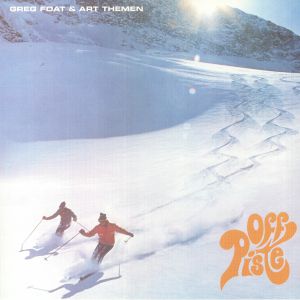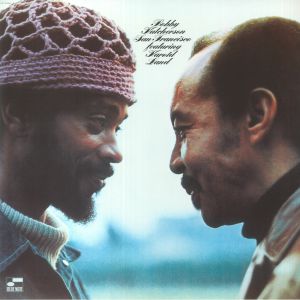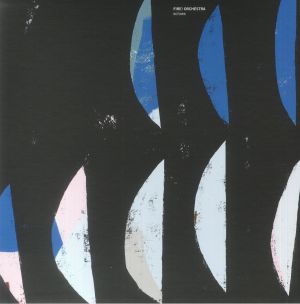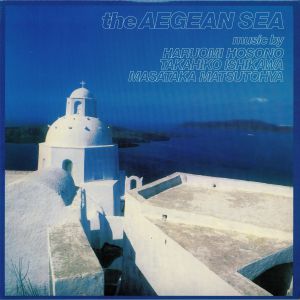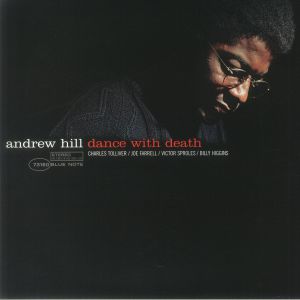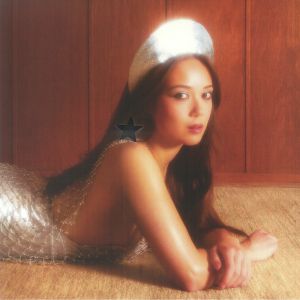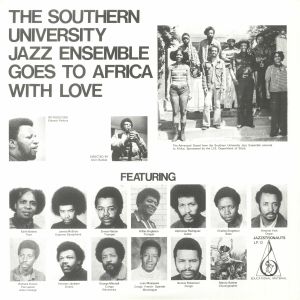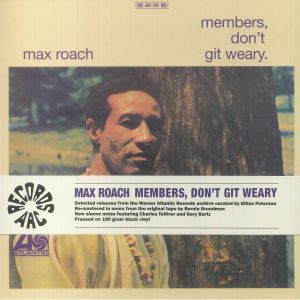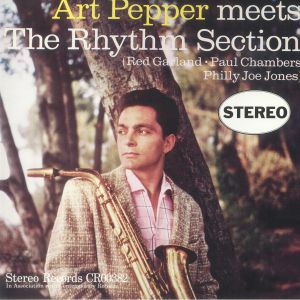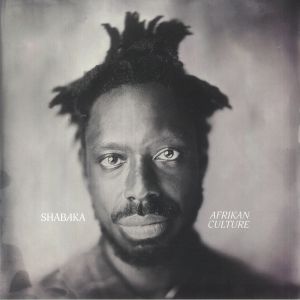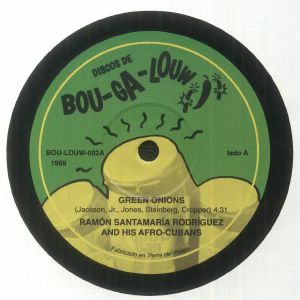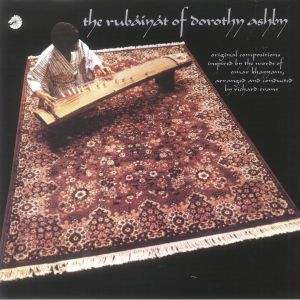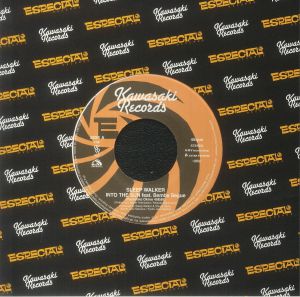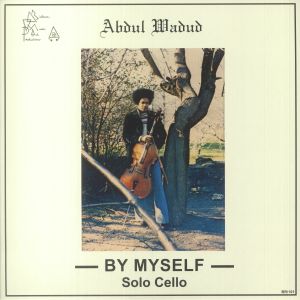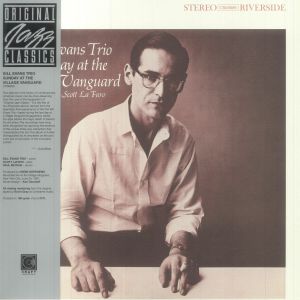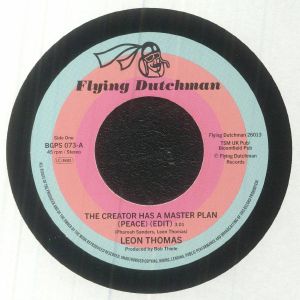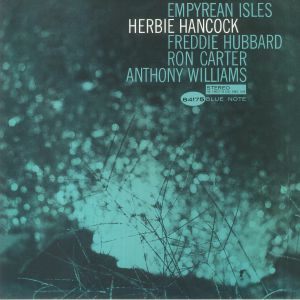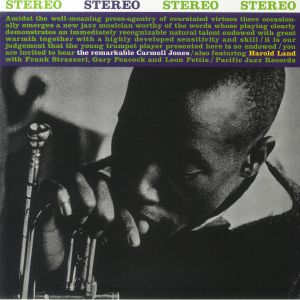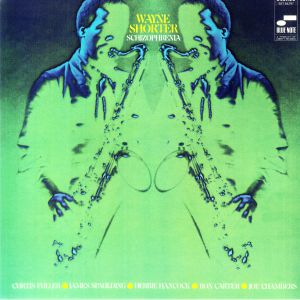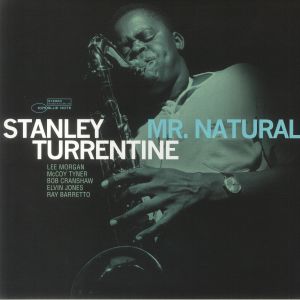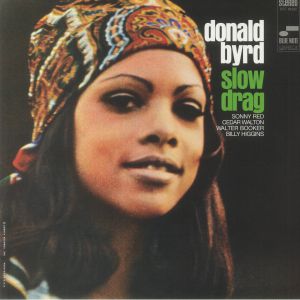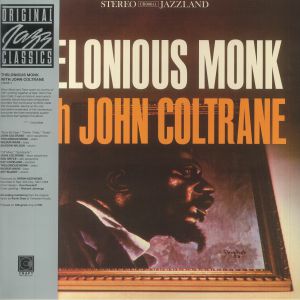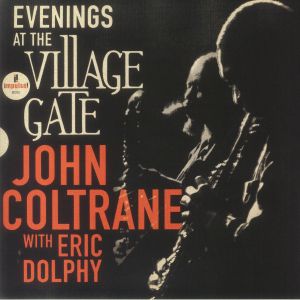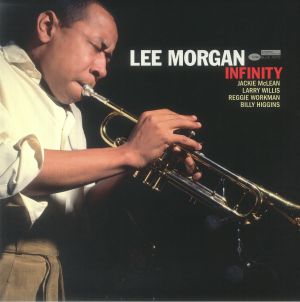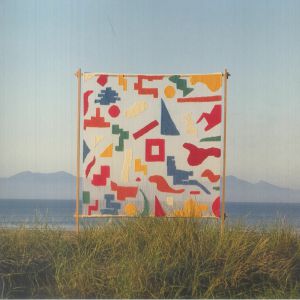
Juno Recommends Jazz
Jazz Recommends Jazz Best of 2023
6 Dec 2023
Read more...
1
Review: In the field of spiritual jazz, there are few albums as seminal as Pharoah. Originally released in 1977 and serving as a landmark for the genre as well as Pharoah Sanders himself, it remains a towering work of understated beauty, using negative space and patient pauses as potent as the notes played. Sanders sadly passed on to the next realm in 2022 amidst a wave of renewed appreciation for his work, and Luaka Bop have taken on the task of reissuing this otherworldly classic in fine style. As well as the original album, a second record features two previously unreleased live versions of 'Harvest Time', and the package comes with a 24-page booklet featuring a wealth of additional material to round out the experience of one of the all-time greatest jazz albums.
...Read more
in stock $55.74
2
Review: American jazz pianist par excellence Ahmad Jamal recorded The Awakening in 1970, originally for the Impulse! label. He was joined by Jamil Nasser on bass and Frank Gant on drums, and amongst his own compositions such as 'The Awakening' you can hear him tackling works from Herbie Hancock amongst others. Considering Jamal was already 20 years into his career by this point, the album has been hailed by critics for highlighting his evolution as a pianist, creating a more complex style without sacrificing delicacy and expression. It's a classic which is also loaded with hooks you might well have heard elsewhere on tracks from Nas and Common, to name but a few.
...Read more
in stock $36.96
3
Cat: BWOOD 0298EP. Rel: 30 Jan 23
Jazz
Review: Brownswood Recordings return to focus on Yussef Dayes and co. for their latest release. Live At Joshua Tree is Dayes' latest live album, capturing the jazz musician and drummer's stellar live performance while posted up slap-bang in the middle of Joshua Tree National Park in California, USA. With the music canopied by this natural desert amphitheater, the sound of the album is fittingly warm and dry, catching the tones of every instrumentalist to a muted, temperate T: there's bass from Rocco Palladino, sax by Malik Venna, keys by Elijah Fox and percs by Alexander Bourt. Make sure to catch the live video version of the album on YouTube.
...Read more
in stock $23.81
4
Review: Japan's revered DJ Muro has put together his first ever compilation for BBE. Diggers Dozen is a real gem with 12 tracks of Japanese jazz-funk and Latin-jazz goodness that fuse traditional instrumental with traditional melodies. These tunes were originally made for the 70s for Nippon Columbia by legendary composers of the time such as Kiyoshi Yamaya, Tadaaki Misago & Tokyo Cuban Boys, Kifu Mitsuhashi, Toshiyuki Miyama and more. Finding these cuts on their original pressings is rare and expensive so don't sleep on this real collector's essential.
in stock $47.34
5
Review: Although hard-to-find, Harold McNair's 1968 cut 'The Hipster' has long been an anthem on the British jazz-dance scene, with numerous contemporary musicians (Chip Wickham included) referencing it in their work. Here reissued officially by Soul Brother, the track features the Jamaican-born flautist and saxophonist delivering energetic, life-affirming flute solos over an infectious, piano-sporting jazz groove. As the original RCA 45 did, this pressing also features fellow 'Flute and Nut' album track 'Indecision' - a more laidback affair built around brushed snares, languid jazz breaks and rubbery double bass - on side B.
...Read more
in stock $15.68
6
Review: If you like hip hop and broken beats and top-class edits you will already be fans of Black Cash & Theo AKA Thelonious Beats. They have got a bottomless discography full of it and mostly on their own Galaxy Sound Co label. Here comes another addition to the cannon in the form of a pair of glorious jazz-funk nuggets, starting with 'Footin' It' by George Benson from his fifth studio LP back in 1968. On the flip is a 1973 cut from pianist Les McCann. 'The Harlem Buck Strut' was from a groundbreaking jazz-synth album and you can tell why here with its forward-looking sounds and designs still sounding ahead of its time.
...Read more
out of stock $12.61
7
Review: Top pianists, composers and musicians Greg Foat and Are Themen came together over a mutual appreciation for each other's music. This first collaborative album brings each artist's respective influences to a sublime collection of soundscapes that merge kosmische, jazz, vintage soundtrack vibes and ambient into escapist pieces of musical daydreaming. These are tracks that operate on a grande, expansive scale, elevate mind, body and soul and raise you up to the heavens on lush chords and mellifluous melodies using a mix of old synths and effects pedals and an array of other musicians Whether this is jazz or ambient or modern classical, it doesn't get much better than this.
...Read more
out of stock $51.27
8
Review: Here's another classic from one of the greatest vibraphone players to ever grace the world of jazz. Amongst Bobby Hutcherson's imperious discography lies this collaboration with tenor sax, flute and oboe virtuoso Harold Land, originally released on Blue Note in 1971. San Francisco is notable for the shift Hutcherson and Land took away from the common hard bop style they were best known for, heading towards the fruitful pastures of jazz fusion. As well as the lead men, special credit goes to the rhythm section of John Williams on bass and Mickey Roker on drums, holding down some sturdy grooves for the duration.
...Read more
in stock $28.57
9
Review: Fire! Orchestra is a sonic behemoth comprising 28 members from Swedish jazz, improv and avant rock scenes. Led by the core trio of Fire! (Mats Gustafsson on sax, Johan Berthling on bass and Andreas Werliin on drums), the orchestra creates a massive sound that blends psychedelic rock and avant-garde jazz. Echoes is their fourth album, a two-part suite inspired by Pink Floyd's Meddle and Don Cherry's Organic Music Society. The album features guest vocals by Mariam Wallentin and Sofia Jernberg, who add a haunting and hypnotic dimension to the original orchestral chaos.
...Read more
out of stock $92.15
10
Cat: V 25AH506. Rel: 13 Mar 23
Jazz
Review: In 1979, a year after he co-founded Yellow Magic Orchestra, Haruomi Hosono joined forces with acoustic guitarist Takahiko Ishikawa and keyboardist Masataka Matsutoya to record "The Aegean Sea", a gloriously sunny set of jazz-fusion, disco and jazz-funk cuts shot through with Mediterranean musical influences. It's the kind of thing that would now be considered "Balearic", so it's little surprise to see the set getting a European reissue for the very first time. There's much to admire throughout, from the funk-fuelled dancefloor cheeriness of "Reggae Aegean Woman" and Bob James/Jimmy Smith-influenced bliss of "Image", to the sun-baked gorgeousness of "Day Break" and thrillingly jaunty "Atlantis".
...Read more
out of stock $23.81
11
Review: Andrew Hill's debut album first came to the jazz giant Blue Note Records in 1963, but it wasn't until almost two decades later in 1980 when the titanic 'Dance With Death' laid down the pianist's existential side. A six-track meander through melodic post-bop, high-note ivory-tinkings, and an unmistakable focus on swing as its rhythmic base, this is almost certainly an unforgettable brush with the other side. Hill's piano is muted yet stark, providing a neatly blue counterpoint to the stereoized and doubled-up trumpet parts played by Charles Tolliver and Joe Farrell.
...Read more
out of stock $33.05
12
out of stock $37.82
13
Cat: NA 5244LP. Rel: 19 Jun 23
Jazz
in stock $37.82
14
Review: Members, Don't Git Weary is a Max Roach classic that now gets reissued by the Gilles Peterson-curated Arc Records. It has been mastered in mono from the original analogue tapes by the multi-Grammy winning Bernie Grundman. It comes with new sleeve-notes featuring Charles Tolliver and Gary Bartz and never before seen images of Roach from Warners archives. Originally released in 1968, it's a highlight of Roach's discography with post-bop sounds and modal workouts, some of which are written by Roach, some by Stanley Cowell and one by Gary Bartz.
in stock $30.53
15
Review: Art Pepper was regarded as one of the world's greatest alto-sax players by the time of his death in 1982. This album, Art Pepper Meets The Rhythm Section, is widely regarded as one of his finest works, although legend has it he was only informed about the session the morning of recording and arrived unprepared. He was playing with a strong band - at the time they were Miles Davis' rhythm section no less. Red Garland on piano, Paul Chambers on bass and Philly Joe Jones on drums, and Art Pepper out front giving his all on a sax that was reportedly in bad shape. Such scenes are iconic music made of.
...Read more
in stock $40.05
16
Review: A saxophonist at the pinnacle of his game, Shabaka Hutchings presents 'Afrikan Culture, on which he explores the rich musical traditions of the African continent and combines them with contemporary, self-affirming themes. Remarkably for how well-touted his name is, this is Hutchings' first ever solo LP, bringing it to the masses under the name Shabaka (following on the smash success of Sons Of Kemet and The Comet Is Coming). It's a stunning, existential album which not only pays tribute to the Afrofuturist greats who precede him, but which, of course, looks squarely into the eyes of Afroftuture that will come after him.
...Read more
in stock $22.60
17
Cat: BOULOUW 002. Rel: 24 Apr 23
Jazz
Review: Mongo Santamaria's 'Green Onions' here (a cover of the iconic Booker T standard) is a classic cut that showcases the legendary Cuban percussionist's mastery on the drums. First released in 1969 alongside the nighttime swayer 'In The Midnight Hour' , the single hears a funking reissue here that once more shines a blinding light on Santamaria's deft ability to blend originally American compositions with Latin rhythms and soul-jazz structures.
out of stock $22.40
18
Review: Dorothy Ashby went down in time as one of Detroit's longstanding greats; predominantly a jazz harpist, she was one of the first and most successful jazz musicians to use the harp as a lead instrument. The Rubaiyat of Dorothy Ashby is her ninth and penultimate album, released in 1970 through Cadet Records. Its adventurous blend of spiritual and funky jazz draws on various cultures and traditions, but was largely inspired by the words of Omar Khayyam, a 12th-century Persian poet and philosopher. Ashby expands her playing repertoire into the Japanese koto, as well as singing on some tracks, producing a sound describable as nothing less than spiritual - this is further tempered by backing flutes, oboes, vibraphones and kalimbas to boot. This one also coincides with a revived interest in the work of Rafiyq, the spoken word artist heard throughout.
...Read more
in stock $18.77
19
Review: Kawasaki are digging back into the archive of cult Japanese jazz group Sleep Walker to present this perfect 7" of edits from the band's catalogue. First up on the A side is 'Into The Sun', the 2004 track featuring Bembe Segue which gets a bang-tidy nip and tuck from Yoshihiro Kino. Flip it over for 2007 track 'Wind', which features Yukimi Nagano and gets a thoroughly excellent edit courtesy of DJ Kawasaki himself. Tapping into a more recent iteration of Japanese jazz and presenting it in a spin-friendly format for the DJs out there, this one comes highly recommended.
...Read more
out of stock $22.96
20
out of stock $43.41
21
Review: Here's a masterclass in live jazz recordings, widely considered one of the best of all time and with very good reason. Bill Evans sat down at the piano for five consecutive sets at the Village Vanguard in New York on June 25 1961, joined by drummer Paul Motian and bassist Scott LaFaro (who died just 11 days later). Due to LaFaro's death, the album was put together as a tribute of sorts, bookended by LaFaro's own compositions and with other tracks selected to celebrate his outstanding playing. Other albums such as Waltz For Debby have since drawn on material from these sessions, but this original set remains the unrivalled pinnacle of live sets from Evans.
...Read more
out of stock $46.22
22
Cat: BGPS 073. Rel: 30 Oct 23
Jazz
Review: 'The Creator Has a Masterplan (Peace)' might have been performed beautifully by Louis Armstrong but it was written by Pharoah Sanders and Leon Thomas. Sanders was the first to record and release it on February 14, 1969 and it has since been covered by the likes of Don Cherry, Krokodil, The Dynamics, Lord Echo and many more artists right up to the present day. Here we get the Leon Thomas versions from 1969 as well as the one he recorded alongside Louis a year later. Two sublime sounds that make the whole world feel at peace.
in stock $12.61
23
Cat: 485956 2. Rel: 20 Mar 23
Jazz
Review: Blue Note's Classic Vinyl Series turns its focus to the one and only Herbie Hancock here for another superb reissue that will keep the jazz heads happy. His long player Empyrean Isles landed in 1964 as his fourth overall. For this one Hancock linked up with his Miles Davis bandmates including Ron Carter on bass and Tony Williams on drums with Freddie Hubbard also on board with his trusty trumpet. The record works through hard bop and modal as well as plenty of soulful jazz sounds and is another standout in Hancock's discography.
in stock $28.57
24
Cat: 387984 2. Rel: 06 Mar 23
Jazz
Review: Carmell Jones' 'The Remarkable Carmell Jones' is a masterpiece of hard bop, reissued from the 1961 debut and which showcases the trumpet virtuoso and Kansas City-born musician's leagues-beyond talent on the brasses. Released as part of the Tone Poet Series on Blue Note - which aims to comprehensively reissue select LPs from the Blue Note catalog in perfect detail, to the point of never needing another reissue again - the LP once more recalls Jones' inventive and mark-making solos, backed by a stellar lineup of musicians including Harold Land and Frank Strazerri.
...Read more
out of stock $39.77
25
Review: Between 1964-1967 the legendary saxophonist and composer Wayne Shorter created a treasured and deeply influential body of work, among which 1967's Schizophrenia lay. On this meandering but impassioned jazz dedication to an often misunderstood mental state, Shorter arrived at the pinnacle of post-bop and gazed out at the horizons around him, producing one of his most complete and stylistically diverse artistic statements with a sextet of like-minded musical adventurers. James Spaulding on alto saxophone and flute, Curtis Fuller on trombone, Herbie Hancock on piano, Ron Carter on bass and Joe Chambers on drums; all came together to play some of Shorter's most enduring themes, including the unforgettable groove of 'Tom Thumb', the evocative 'Go', and the ballad 'Miyako'.
...Read more
in stock $41.45
26
Review: One of the greatest soul voices working in the US today, Billy Valentine's latest release, first plotted out in the summer of 2020, sees the artist responding to the chaos of a global pandemic and the seismic impact of George Floyd's murder via legendary works from Curtis Mayfield, Gil Scot Heron and Pharaoh Sanders. In collaboration with acclaimed producer and songwriter, Bob Thiele Jr. (son of Flying Dutchman founder, Bob Thiele), Valentine's rich, velvety vocals breathe new life into these already-powerful tracks, bringing them into the contemporary political context with renewed urgency. Released on Acid Jazz in partnership with renowned US label Flying Dutchman, Valentine's latest output marks the first new music from the label since the '70s - a momentous return for a keystone tastemaker of the American jazz world.
...Read more
in stock $27.74
27
Review: The Tone Poet series is one in which Blue Note revisit some of its most classic albums and gives them some fresh attention. This vinyl edition of Stanley Turrentine's 1964 recording of Mr. Natural was produced by Joe Harley and has been mastered by Kevin Gray, who worked from original master tapes. It's pressed on 180g vinyl and comes in a lovely and deluxe gatefold tip-on jacket. It is a great record from the soulful tenor saxophonist and Blue Note stalwart with help from Lee Morgan on trumpet, Elvin Jones on drums, McCoy Tyner on piano, Bob Cranshaw on bass, and Ray Barretto on congas.
...Read more
in stock $33.05
28
Review: Donald Byrd's 1967 Slow Drag album came after the jazz legend had already recorded more than dozen albums for the seminal Blue Note label. He was joined for it by the drumming of Billy Higgins, alto saxophonist Sonny Red, pianist Cedar Walton, and bassist Walter Booker who all bring their own original compositions to the album. It's a pure hard bop session that marked the end of this chapter of Byrd's sound before he moved into fusion territory. Plenty of edgy groove-fess, ad-libbed vocals and boss flavours feature on what is one of many Byrd essentials.
...Read more
in stock $31.37
29
Cat: CR 00611. Rel: 29 May 23
Jazz
Review: As part of the newly relaunched Original Jazz Classics Series, Kevin Gray at Cohearent Audio has remastered this seminal jazz record from Thelonius Monk and John Coltrane from the original tapes and in all analog fashion. It's a deserving treatment for what many believe to be one of the great ever collaborative jazz records. As well as those two legendary players and jazz innovators, further greats joined in the recording sessions including Art Blakey on the drums, Wilbur Ware on bass, and alto sax from Gigi Gryce. What a piece of history it is too.
in stock $46.22
30
Review: In August 1961, John Coltrane and his legendary Quintet, joined by visionary multi-instrumentalist Eric Dolphy, played the revered Village Gate in Greenwich Village, New York, not, at that time, as established as it would soon become. This special new double album features over an hour and a half of music that has never before been heard, including well-known Coltrane classics such as 'My Favorite Things' and 'Greensleeves' as well as the only known non-studio recording of Coltrane's 'Africa' from his Africa/Bass album. The record then marks a historic moment in Coltrane's career.
...Read more
in stock $22.40
31
Review: Blue Note's Tone Poet series looks to the legendary trumpet player Lee Morgan for its next focus reissue. The album is made up of four originals and alto sax player Jackie McLean's engaging ballad 'Portrait of Doll'. Drummer Billy Higgins was also involved in these sessions, which were recorded in 1965 in the Van Gelder Studio just a few weeks after Morgan recorded his sextet date Cornbread. The prolific trumpeter kept up the good form here with explorations of hard bop and beyond, including a hard hitting and probing title cut and the laid-back 6/8 groove of 'Miss Nettie B.'
...Read more
out of stock $31.39
32
Review: Manchester jazz man Mathew Halsall has been responsible for the revival of the scene over recent years even if he has never claimed to be part of anything other than his own musical world. On new album An Ever Changing View via his own Gondwana label he gets more experimental than ever. His sound and his production expands into all new realms and offers up deeply meditative music no doubt inspired by staying in a house with breath-taking sea views, and later a striking modernist house which led him to compose what he saw 'like a landscape painting'. This one comes with package as fantastic looking as the album sounds.
...Read more
out of stock $31.93
33
Review: Here's a classic from The Oscar Peterson Trio - a coll-headed slice of traditional jazz from 1963 which is enjoying its 60th anniversary as the clock ticks over to 2023. It's an understated masterpiece, made up short performances written with commercial radio broadcast in mind, but even within tight time frames Peterson creates subtle, elegant movement which has rendered this record an enduring influence on successive generations of jazz musicians. Repressed on heavyweight wax and presented in a gatefold sleeve, it's sure to inspire a new wave of jazz artists as it gets a fresh airing.
...Read more
in stock $44.81

 USD
USD




